The MITS Alliance works with surveillance sites around the world to support the integration of the MITS approach into existing mortality surveillance systems.

Gandaki Medical College Teaching Hospital and Research Center (Perinatal MITS Nepal)
The Gandaki Medical College Teaching Hospital and Research Center (GMCTHRC) was established in 2007 with the aim of imparting quality medical education to students from different parts of the world.
GMCTHRC is using MITS to strengthen the identification and characterization of causes of perinatal deaths in the Kaski District of Nepal.

The INCLEN Trust International
Started in 1980, The INCLEN Trust International (INCLEN) is a not-for-profit research organization conducting collaborative, multi-disciplinary studies on high-priority global health issues.
INCLEN is applying MITS to document the causes of death across different age groups (children, adolescents, and adults) and stillbirths at three sites in India.
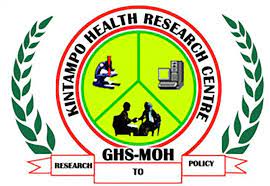
Kintampo Health Research Centre
Established in 1994, the Kintampo Health Research Centre (KHRC) is a well-established, African-based research centre. The African identity of KHRC is important as it emphasises African solutions to African health challenges. KHRC is one of three field research centres of the Research and Development Division (RDD) of Ghana Health Service, established in 1994.
KHRC is implementing a mixed-method study to determine the cause of death in stillbirths, children under five, and persons over 60 years using MITS and Verbal Autopsy in Ghana.

Makerere University Centre for Health and Population Research (MUCHAP)
Part of Makerere University, the Makerere University Center for Health and Population Research’s (MUCHAP) mission is to promote the well-being of the Ugandan population by generating and providing high-quality population-based demographic, health, and socio-economic information to decision-makers and researchers.
MITS Project: MUCHAP is integrating the MITS surveillance program into the MUCHAP/ Iganga-Mayuge Health and Demographic Surveillance Site (IMHDSS) mortality-surveillance system using standardized instruments to establish cause of death.

MRC/Wits Rural Public Health and Health Transitions Research Unit, School of Public Health, University of the Witwatersrand (Agincourt)
The MRC/Wits-Rural Public Health and Health Transitions Unit (Agincourt) is a health and socio-demographic surveillance system (HDSS) that was established in 1992 in rural northeast South Africa, close to the national border with Mozambique. The MRC/Wits-Agincourt Unit responds to a scope of rural public health issues to produce health research and data which is translatable to other rural Sub-Saharan communities.
The MRC/Wits Rural Public Health and Health Transitions Research Unit is integrating MITS into established community-based mortality surveillance in rural South Africa to support the strengthening of verbal autopsies.
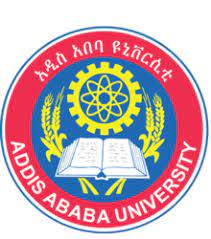
College of Health Sciences, Addis Ababa University (CHS)
The College of Health Sciences (CHS), established in 2009 and part of Addis Ababa University, provides high-quality and regionally relevant health sciences training, research, and community services at undergraduate and postgraduate levels.
CHS worked with Butajira General Hospital to conduct a hospital-based descriptive study using MITS to determine cause in neonates at the neonatal intensive care unit of Tikur Anbessa Specialized Hospital. The study focused on evaluating MITS’ capability to assess the sampling yield of specimens collected by non-pathologists, and test the accuracy of image-guided samples from brain and abdominal organs.
Study results showed that respiratory and cardiovascular conditions and complications of intrapartum events were the top three causes of death in infections. Pathologists and non-pathologists’ performances were comparable, showing the ease of the procedure even with short-term training. The study also identified target tissue for one out of two cases of intraventricular hemorrhage. The yield was poor but diagnostically relevant.

Department of Pediatrics and Child Health, Aga Khan University
The Department of Pediatrics and Child Health, part of the medical college at Aga Khan University, is committed to providing excellent clinical service and quality care to children while training undergraduate and postgraduate students.
The “Community-Based Surveillance for Infant Mortality: Minimally Invasive Tissue Sampling Study” focused on reparatory syncytial virus (RSV) with the primary objective to assess and analyze the burden and determinants of RSV in infants (<6 months).
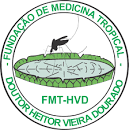
Fundação de Medicina Tropical Doutor Heitor Vieira Dourado
Founded in 1970, the Fundação de Medicina Tropical Doutor Heitor Viera Dourado (FMT-HVD) is an institution dedicated exclusively to the diagnosis and treatment of tropical diseases in the Amazon. The organization comprises a hospital, an outpatient clinic, and a teaching and research center. It is considered a national and international center of excellence for the treatment of tropical diseases.
The FMT-HVD team used MITS to investigate the causes of death and histoplasmosis among HIV-infected deaths to evaluate the acceptability and feasibility of using MITS in different cultural, religious, and geographical settings. The study, "The Burden and Postmortem Characteristics of Histoplasmosis Among HIV-Infected Deaths: A Study Using MITS in the Brazilian Amazon," assessed deaths across all populations to evaluate the acceptability and feasibility of using such tools in different cultural, religious, and geographical backgrounds.
Between October 2020 and March 2022, Fundação de Medicina Tropical team performed 100 MITS. The detection of histoplasma capsulatum was in full agreement with histopathological and mycological analyses. The minimally invasive tissue sampling tool had a high acceptance within the community.

Fundación INFANT
Fundación INFANT's mission involves the investigation of the causes of respiratory diseases that seriously affect children, such as asthma, bronchiolitis, pneumonia, and influenza.
Fundación INFANT conducted two studies. The first one entitled "Neonatal in-hospital cause of death determination by minimal invasive tissue sampling technique in a low-income region of Argentina” was an active surveillance study to determine the causes and burden of in-hospital neonatal deaths in a network of six public hospitals in a low-income region of Buenos Aires, Argentina. The second study entitled "Determination of the final cause of death using a minimally invasive technique in hospitalized adults with a diagnosis of coronavirus disease (COVID-19)" was a prospective study to explore the mechanism of death after a severe COVID-19 disease in adults combining histopathology, molecular microbiology diagnosis and genes expression by nanostring.

Gandaki Medical College Teaching Hospital and Research Center
Gandaki Medical College Teaching Hospital and Research Center was established in 2007 to provide quality medical education and care services.
Gandaki Medical College conducted the study "Determining Efficiently the Cause of Death among Adults and Generating Mortality Evidence at MITS Alliance Unit Nepal (DECODE MAUN); NEPAL" The study compared the causes of non-traumatic deaths as determined by MITS compared with conventional autopsy in Nepalese adults . The study sites included Gandaki Medical College, Pokhara Academy of Health Sciences, and Damauli Hospital.
The study team found that MITS data contributed to identifying the immediate, underlying and contributory causes of death in 79%, 45% and 89%, respectively, of those enrolled in the study. Further, MITS enabled the identification of conditions that were not previously diagnosed antemortem including HIV and TB.

Kasturba Medical College
Kasturba Medical College aims to train physicians through teaching, patient care, and medical research to provide global leadership in human development, education, and health care.
Kasturba Medical College Department of Pathology conducted a MITS study, "Validity of minimally invasive tissue sampling in determining the cause of death in stillbirths and neonates due to neurological insults in the brain: a study in a tertiary care center in India." The study aimed to identify the causes and etiologies associated with neurological insults and injury in the brain resulting in stillbirths and neonatal deaths and investigate patterns of brain injury in preterm versus term infants with particular reference to white matter injury. The study team concluded that MITS samples were useful in confirming severity and patterns of neurological injury in neonates.
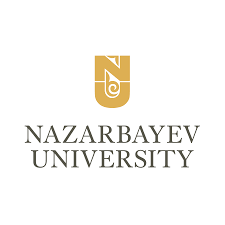
Nazarbayev University Astana
Nazarbayev University (NU) in the Republic of Kazakhstan is a research university that prepares graduates for success in an age of globalization and technological disruption. NU is committed to achieving excellence in research and ensuring that its research contributes to the socio-economic development of Kazakhstan and the region.
NU's MITS study, "Validating a Minimally Invasive Tissue Sampling Technique as a New Paradigm for Determining Cause of Death: Experience from Kazakhstan," looked to determine the acceptability of MITS over complete diagnostic autopsies among deaths in children under eleven months, as well as to compare the concordance between MITS and complete diagnostic autopsies.
The study team found that intrauterine hypoxia is the most frequent cause of death among stillbirths, followed by congenital malformations, deformities, and chromosomal abnormalities. They also found that MITS diagnostic yields and accuracy were high and had a high concordance with complete diagnostic autopsies. Although the team found MITS to be feasible within their setting, they found that the histological analysis of MITS samples, in the absence of other analysis including microbiology, was limited, and suggested a holistic approach that uses all other relevant data.
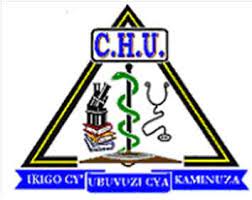
University Teaching Hospital of Kigali (CHUK), Rwanda
The University Teaching Hospital of Kigali (CHUK) in Rwanda is committed to providing quality healthcare, training health professionals, conducting outstanding research, and providing technical support to health systems.
The study, "Minimally Invasive Tissue Sampling (MITS) Implementation at Kigali University Teaching Hospital (CHUK)," aimed to determine the perception of MITS by healthcare providers and the community and to determine the significant causes of death in Rwanda among all ages from any health facility, families and communities within Rwanda.
The CHUK study found particular causes of death when MITS was interpreted with antemortem clinical data. It determined that septicemia was the leading cause of death (26%) and discovered that both healthcare professionals and relatives understood the purpose and benefits of MITS using counseling services.